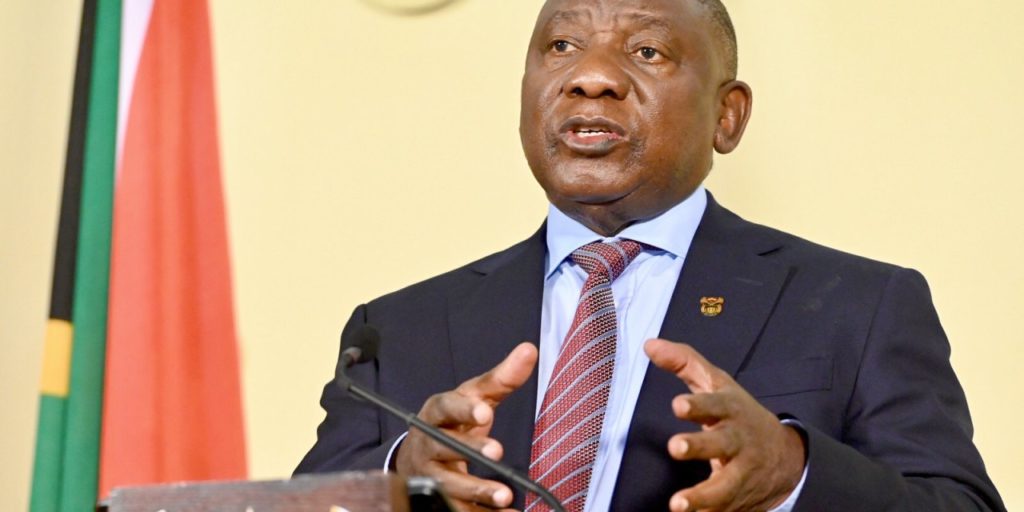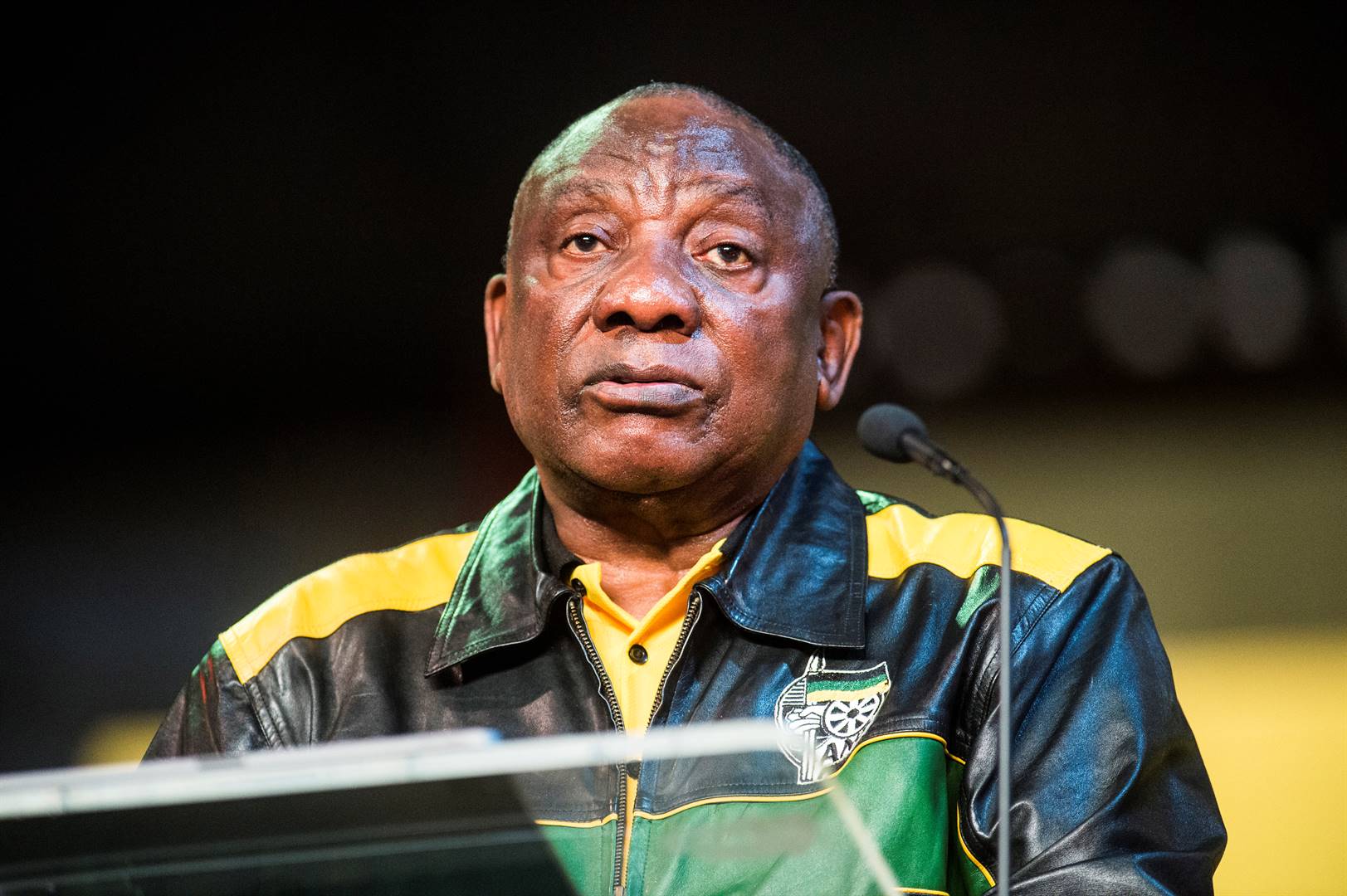ANC divided over Ramaphosa’s ‘insurgency’ claim

The ANC appears to be divided on how the public violence and the looting of goods and businesses of last week in KwaZulu-Natal and Gauteng should be characterised.
This comes after the provincial ANC leaders in KZN and Gauteng made statements at odds with President Cyril Ramaphosa, who has classified the riots as an attempted insurrection. The ANC in the Northern Cape, however, agreed with Ramaphosa.
In his address at the weekend, Ramaphosa said the unrest in KZN and Gauteng was a failed attempted insurrection.
The definition of insurrection is a violent uprising or revolt against a government.
As far as the ANC in Gauteng is concerned, last week’s protests were fuelled by criminality and hunger.
This is according to its provincial secretary, Jacob Khawe
“Gauteng has characterised the unrest as an act of criminality, hunger and unemployment. We noted the unfortunate use of former president Jacob Zuma’s name as the base, but we now know that is far from the truth.
“We welcome the report by security cluster of the work they are doing and we will be guided by the outcomes of investigations,” Khawe said.
The party’s KZN secretary, Mdumiseni Ntuli, said its provincial working committee on Monday disagreed with Ramaphosa’s classification of the unrest as an insurrection.
“Yes, we don’t agree with the characterisation of the unrest as a coup or insurrection,” Ntuli said on Tuesday.
In an interview with Newzroom Afrika, Ntuli said the ANC in KZN believed it was too early to tell.
This despite law enforcement last week discovering thousands of rounds of ammunition and explosives in its attempts to quell further unrest.
“Our own view is that it’s too early. We are yet to see whether indeed this was an insurgence. Remember … an insurrection or a coup, as some ministers have made reference to, first and foremost must be having a distinct and noticeable leadership.
“It can’t just be a chaos of people in different parts of the country whose actions are, in essence, bordering on [being] counterrevolutionary, that may later on result in chaos in society, that may give rise to a condition for an insurrection,” Ntuli told Newzroom Afrika.
Northern Cape ANC chairperson and premier Zamani Saul agreed with Ramaphosa that what happened was indeed an insurrection.
“The attack on January 6 on the US Capitol was an insurrection. The violent incidences of lawlessness accompanied by looting in KZN and GP, where more than 200 people lost their lives, were definitely acts of insurrection. To characterise these acts differently is just nonsensical,” Saul said
ANC head of presidency Sibongile Besani – also a member of the NEC – said Ramaphosa was correct in his characterisation.
According to Besani, an insurrection in SA would not necessarily be a typical coup where a president is abducted by the military, as often happens in other countries.
However, he said, those behind the unrest last week aimed to persuade the hearts and minds of the public into rising up against the government.
Had they been successful, it would have led to total “ungovernability”, Besani said.
“In my view, those who orchestrated this thing, this insurrection as the president articulates it, it was not your normal service delivery protest as we have seen them in SA. It was first trying to cut the food supply in the context of [lockdown] level four and in the context of high levels of unemployment. In the context of underperforming economy, it is easy to trigger anger of people, especially against government,” Besani said
He also fell short of attributing the failed “insurrection” directly to those who have been calling for the head of Ramaphosa since his election as ANC president at the Nasrec conference in December of 2017.
“Remember, there have been calls for the demise and the fall of Ramaphosa and this demise is also linked to the demise of the current [ANC] NEC. That has been quite clear. So the strategy has been to delegitimise the president of the ANC. And it’s not something new.
“When Ramaphosa took over, a campaign to delegitimise and project him as somebody who will not implement conference resolution was already rolling three months or so in his presidency of the ANC. Then that campaign evolved to suggest that Ramaphosa is a lackey of white monopoly capital. And it has been going on and on.
“So the delegitimisation agenda against Ramaphosa and the government he leads has been taking various formats, and if you look at this campaign some of these utterances have been coming from the ranks of the ANC – you can’t rule that out,” Besani said.
There have been mixed messages coming from the government on the characterisation of last week’s unrest.
Initially, Ramaphosa described it as “ethnic mobilisation”, but later changed his position and classified it as an attempted insurrection.
Defence minister Nosiviwe Mapisa-Nqakula, however, contradicted Ramaphosa when she appeared before the portfolio committee on defence on Sunday.
She told the meeting on Sunday night that events of the past 10 days amounted to a “counterrevolution”, because for the unrest to be characterised as an insurrection there had to be a face behind it.
On Tuesday she did an about-turn, saying it was indeed an insurrection.
“The president has spoken. It was an attempted insurrection, OK. And I confined myself to counterrevolution, but, ultimately, remember, any element of counterrevolution may as well lead to an insurrection. Because counterrevolution is about doing all manner of things which are meant to undermine the authority of the state,” Mapisa-Nqakula told journalists in Chatsworth in KZN.
She further told eNCA she was being portrayed as a “young girl” for having contradicted Ramaphosa.
“It is important for me, for my own comfort, for the comfort of all those who put me where I am, including the president himself, to appreciate that there was never any mischief on my side by making that kind of statement. There was never a deliberate effort to undermine the authority of [or contradict] the commander-in-chief [Ramaphosa].”
Mapisa-Nqakula said she had explained herself to the National Security Council, which took a decision that there was an attempted insurrection in the country – TIMESLIVE







